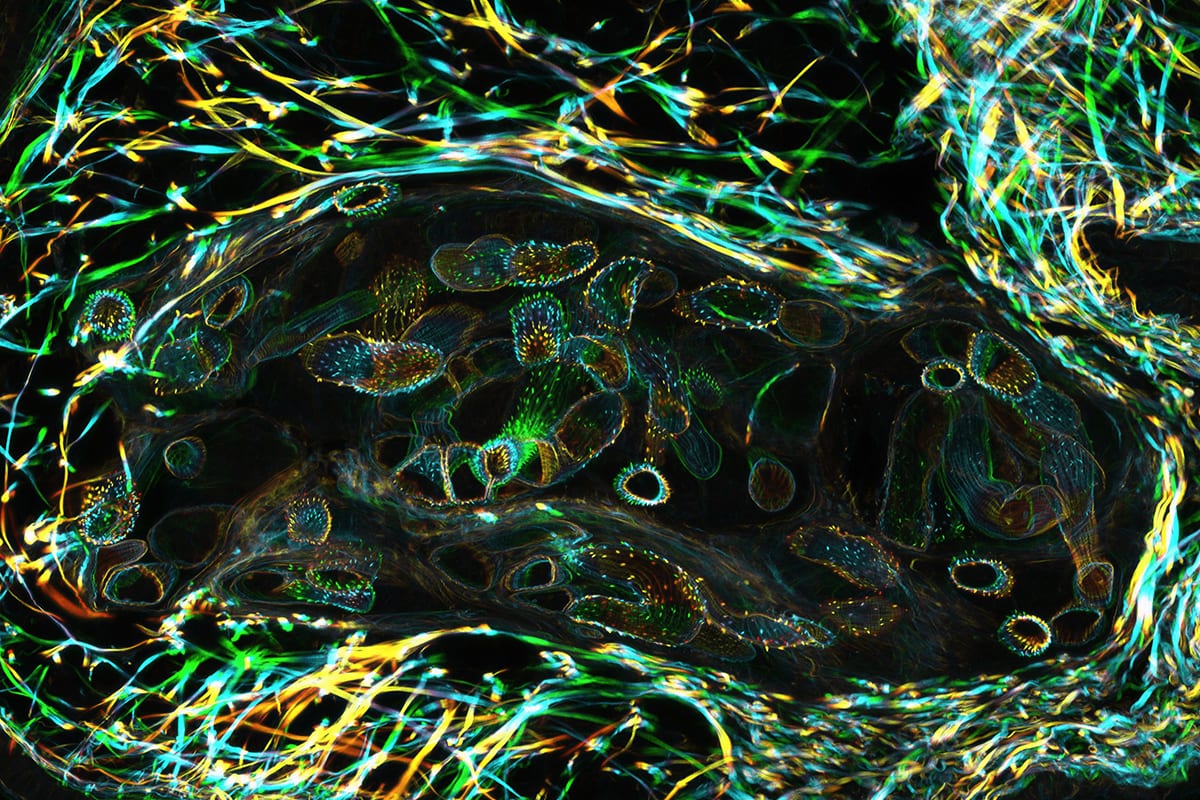Tools for “Forgotten Diseases” of “Forgotten People”
By Katy Lenard, May 21, 2015

Larvae from the parasitic worm that causes schistosomiasis
Nearly 3.3 billion people, a little less than half of our world’s population, are at risk of malaria, TB and neglected tropical diseases—diseases caused by worms, parasites, viruses and bacteria like Chagas disease, river blindness, elephantiasis, sleeping sickness, and many others. Six out of 10 of the world’s poorest people die from these diseases every year. And for those who manage to survive, they endure repeated bouts of serious illness, which affects their ability to provide for their families, ultimately keeping whole societies mired in poverty.
The Global Health Innovative Technology Fund (GHIT Fund)–a unique public health partnership between six Japanese pharmaceutical companies, the Japanese Government and the Bill & Melinda Gates Foundation–recently announced new funding for two of the world’s most neglected diseases.
One investment will go toward a new point-of-care diagnostic test for schistosomiasis, the second most important parasitic disease next to malaria. Spread by snails carrying parasitic worms that live in contaminated freshwater, schistosomiasis can cause enlarged liver, blood in the stool and urine, and can even lead to an increased risk of bladder cancer. The new test would be available for use in remote areas, allowing patients to be treated more quickly, and thus potentially saving lives.
GHIT also announced an investment into a new drug for visceral leishmaniasis (VL), which causes fever, weight loss, enlargement of the spleen and anemia. If left untreated, it is almost always fatal. Existing treatments for VL have serious drawbacks: toxic and costly, they usually require painful injections and intravenous infusions for long periods of time. Current drugs have also become increasingly ineffective against drug-resistant parasites, and have a high risk of failure for HIV co-infected patients. In fact, all co-infected patients will eventually relapse and die unless given antiretroviral therapy.
GHIT’s CEO Dr. BT Slingsby traveled to Singapore and spoke with CNBC Asia’s Squawk Box host Bernie Lo about GHIT’s impact on these diseases and what it means for Asian leadership in global health.
